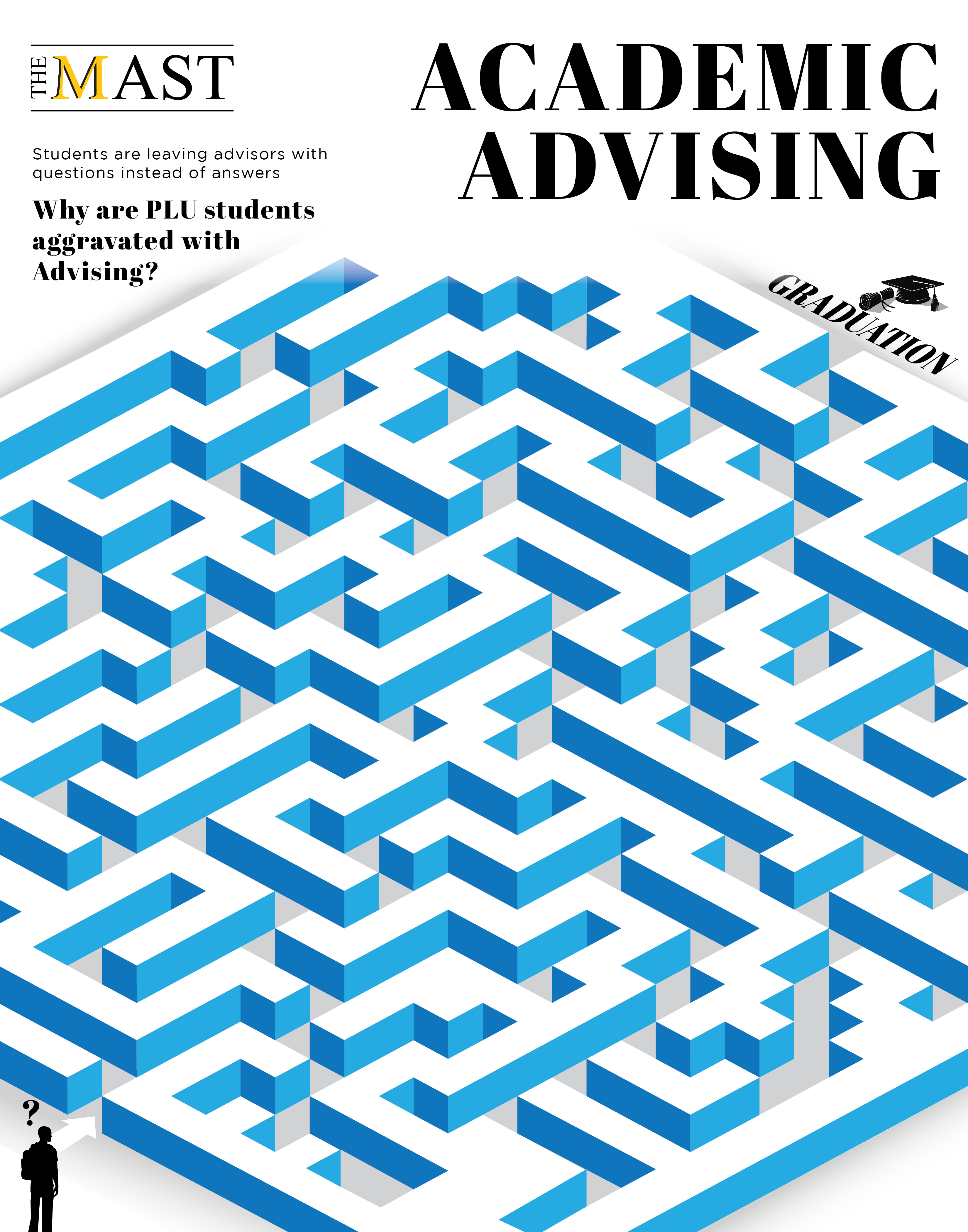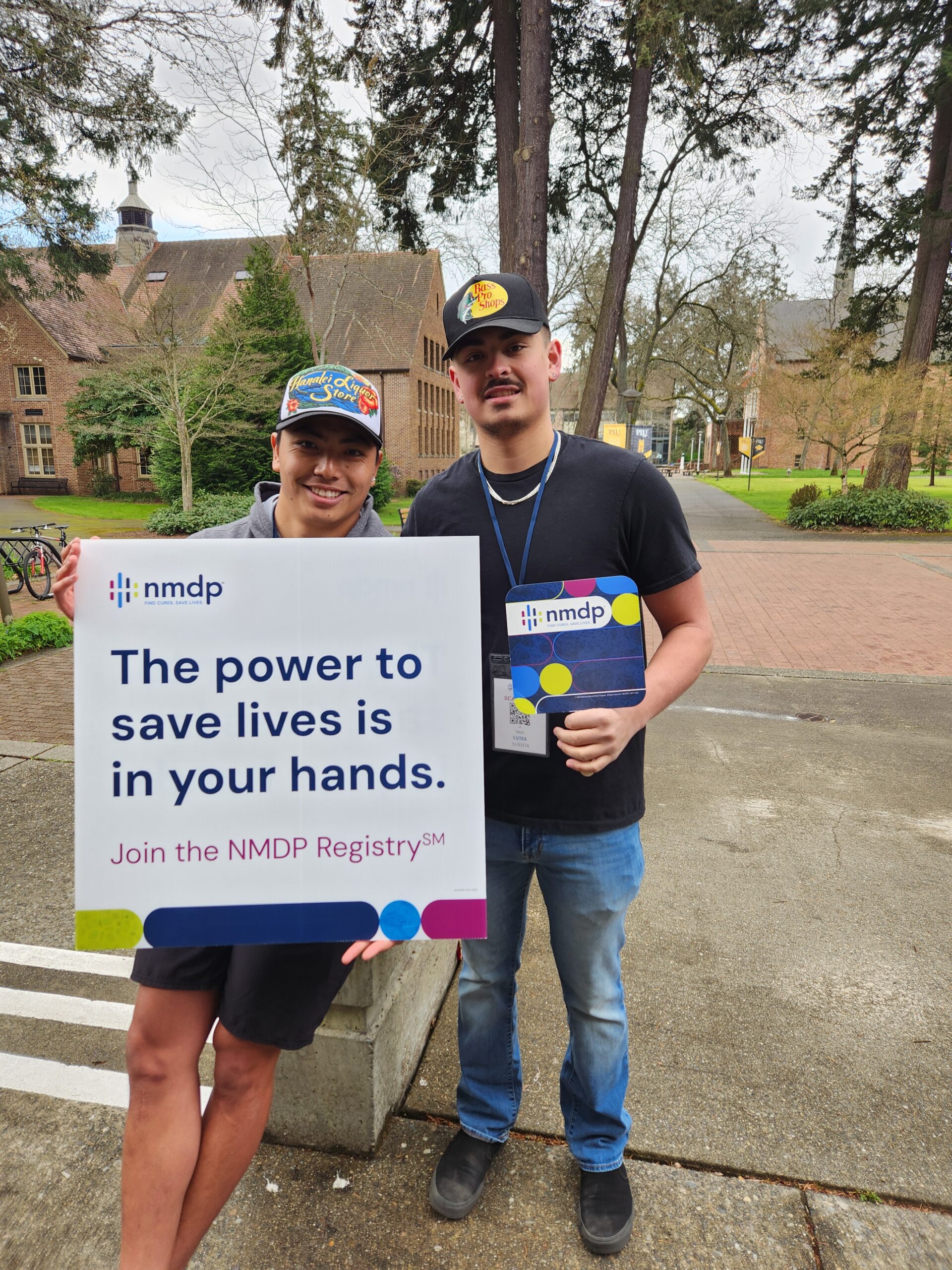By: Chloe Wilhelm
When Max Norstrom started at PLU, she knew exactly what she wanted to do.
She didn’t know how challenging it would be to make it happen.
Norstrom, who was a transfer student but has since left PLU, is majoring in Chinese Studies. When she came to PLU as a declared major, she had extreme difficulties getting her classes, schedule, E-pass – and even her acceptance letter.
“I didn’t get my acceptance letter until I was a month into school,” she said.
Norstrom only found out she had been accepted into PLU when she got an email about having to submit a $200 enrollment deposit.
Because of this, she ended up registering for classes two weeks before school started.
After meeting with a temporary advisor, she was able to get her E-pass, classes, and register her car. She thought that her problems had been fixed.
They had only just begun.
Since she had already declared her major, she was able to meet with a faculty advisor when it was time to register for J-Term and spring semester classes. However, she did not receive the academic help she expected.
“He just gave me my PIN number [for registration],” she said. “That was it.”
She explained that she did not receive any help or guidance on what classes she should take, or in what order. To pick her classes, she had tocheck her CAAP report to figure out what she needed.
“I just kept track myself about what I needed,” she said. “That’s how it’s been ever since.”
Norstrom continued to have limited contact with her advisor, and when she tried to reach out during registration, she only receives her PIN number in return.
She said that the process of planning her degree by herself has been extremely stressful.
She explained that after coming to PLU as a transfer student after doing a full year at another college, she was only able to transfer a semester of credits. Because of this, she tried to fit three and a half years’ worth of classes into three years.
“Working that out by myself and studying my CAAP report… was really stressful and chaotic,” Norstrom said. “I may not be able to graduate when I want to after three years of doing everything on my own.”
“It’s making me look at whether or not I want to stay at PLU,” she said. “[Academic Advising] isn’t the only reason, but it’s one of them.”
Max Norstrom is not the only one who has had difficulty with Academic Advising at PLU. A number of students have had challenging experiences, including Payton Duff, a first-year pre-nursing student.
When registering for fall classes over the summer, she was assured several times that the French class she signed up for would also count as a religion credit.
Duff asked multiple times about the credit, and was assured that it would count.
It didn’t.
“I was very upset,” she said.“It’s very difficult – now I am struggling to fit in a religion class on top of my nursing pre-recs.”
This was not the only negative experience Duff has with Academic Advising. She said that when it came time to register for J-Term and spring semester classes, setting up anappointment was very difficult.
“When I got there, I had a one-hour appointment and was only there for about thirty minutes,” she said.
She explained that while she got helpful information about what classes she should take, it was not a positive experience overall.
“It was helpful, but [my advisor] didn’t seem too excited about the questions I had,” Duff said. “I felt stupid for not knowing.”
She said her advisor gave her recommendations on what classes she should take, but seemed like she wanted to get her appointment over with.
“It wasn’t a welcoming experience,” Duff said. “I felt like a burden.”
Despite the difficult experiences some students have had with Academic Advising, their problems have largely gone unnoticed.
With a student body of over 3,000 students, there are only six academic advisors on campus – four of which have only been advisors for less than six months. Three are PLU graduates from the class of 2018.
Because of their small staff, each advisor provides registration codes, class recommendations, and academic guidance to 100-150 first-year students.
Kris Plaehn, executive director of the Center for Student Success, has worked at PLU for 13 years, and has been an advisor for five months.
She said that during summer training, new advisors were provided with a handbook written by faculty with general information on first-year requirements for each major.
Despite their small staff, Plaehn said that Academic Advising continues to provide a variety of academic support, from helping first-year students pick their fall classes to making sure senior students will be able to graduate on time.
“We want to give students the tools they need to be successful,” Plaehn said.
She said that while Academic Advising provides help for all PLU students, their main focus is on first-year students.
Plaehn explained that after students have either declared their major or have a major they are interested in, they tend to start meeting with a faculty advisor.
Dr. Maria Chavez, department chair of Political Science, is one of the faculty members who provides academic advising.
She currently has 52 advisees, and is able to provide more specific information regarding majors and minors in Political Science.
“My job is to answer any questions students have about the major,” she said. “For students who are sophomores and juniors, I make sure they have everything they need for graduation.”
Student Payton Duff said that she has been able to get more specific advice about her nursing major after meeting with a faculty advisor.
“I was able to get a lot more information after meeting with my professor,” she said. “It helped me a lot.”
When asked about the challenges students have faced with Academic Advising, Kris Plaehn said that the Academic Advising team tries to provide the right information for students.
“We certainly make every effort to learn what’s going on and give the right advice to students along the way,” Plaehn said.
She said that currently, students who have questions or feedback about Academic Advising are able to submit them at plu.edu/student-success.
Plaehn said that the Center for Student Success is planning on releasing a survey in the spring, which would allow students to give feedback on what was helpful and what changes need to be made.
For Max Norstrom, however, a future survey about Academic Advising would be too late to solve the problems she had at PLU.
“I don’t feel connected to my major anymore,” she said. “I’ve tried to reach out to my advisor about withdrawing from PLU, and I’ve gotten no response. I need help.”




















